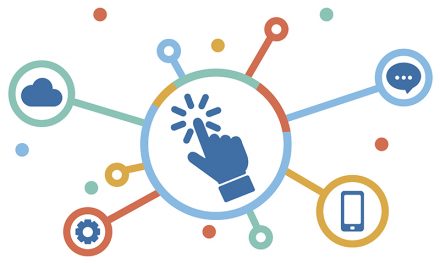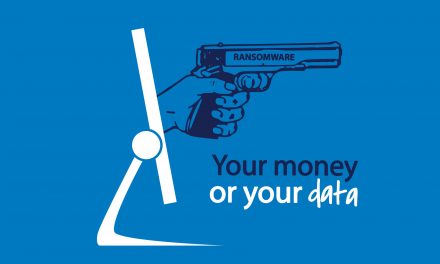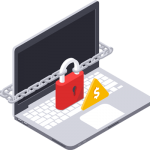Identity Theft has increased dramatically during global pandemic — and the impact on ordinary university personnel is significant. South Africa is the second most targeted country in the world for internet fraud and phishing attacks with South Africans having lost over R1 billion to online fraud during 2020 according to the South African Banking Risk Information Centre (SABRIC)
Even worse, Black consumers and older people are more likely to be victims of fraud than their white or younger counterparts. That’s why it’s crucial to recognize activity designed to steal your hard-earned money.
A growing trend in recent months are scammers who are pretending to be from Microsoft, McAfee, and Norton to target users with fake antivirus billing renewals using a large-scale email campaign.
The latest tactic sends a scary warning to your e-mail address, suggesting that the account owner is at risk of attack due to a lack of anti-virus protection on their PC.
These messages purport to have been sent by some of the biggest names in cyber protection, like McAfee and Norton, in an attempt to trick unsuspecting users. One email that that I have seen is supposed to come from the team at McAfee and reads: “Your subscription has expired! Protect your digital life now. We strongly recommend renewing your McAfee subscription to keep your privacy online and protect your communications.”
This is then followed by a button that says “Get protected now.”
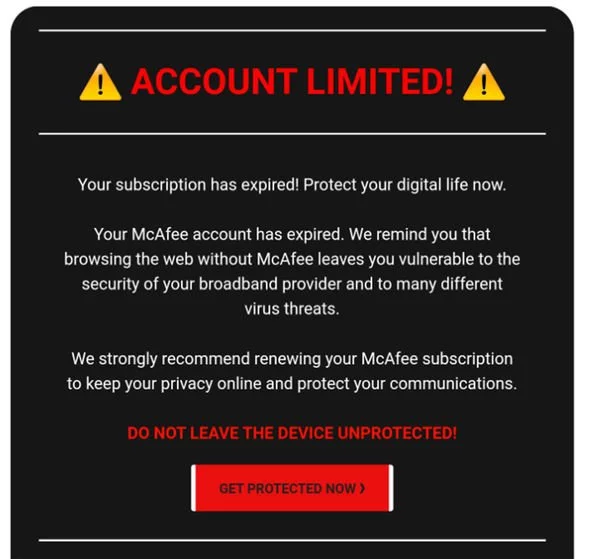
Now I know that currently, the university uses McAfee AntiVirus to protect personnel computers, so this scam will certainly attract our attention. Normally McAfee Antivirus will update itself automatically and personnel don’t have to pay a subscription. But for personnel who have university computers at home or use laptops might be vulnerable as the computers probably have to be connected to the university network in order to be updated.
The way that this scam works is that once the link is clicked, the victims are taken to a fake sign up page where they are asked to pay overinflated prices for anti-virus software they probably do not even need.
Along with the McAfee scam, there is also a Norton antivirus message that is being sent to university e-mail addresses which uses similar method to try and trick computer owners. Instead of a warning about an expired subscription, this email pretends to be an invoice from Norton claiming that the user is about to be charged over R7300 to renew their subscription!
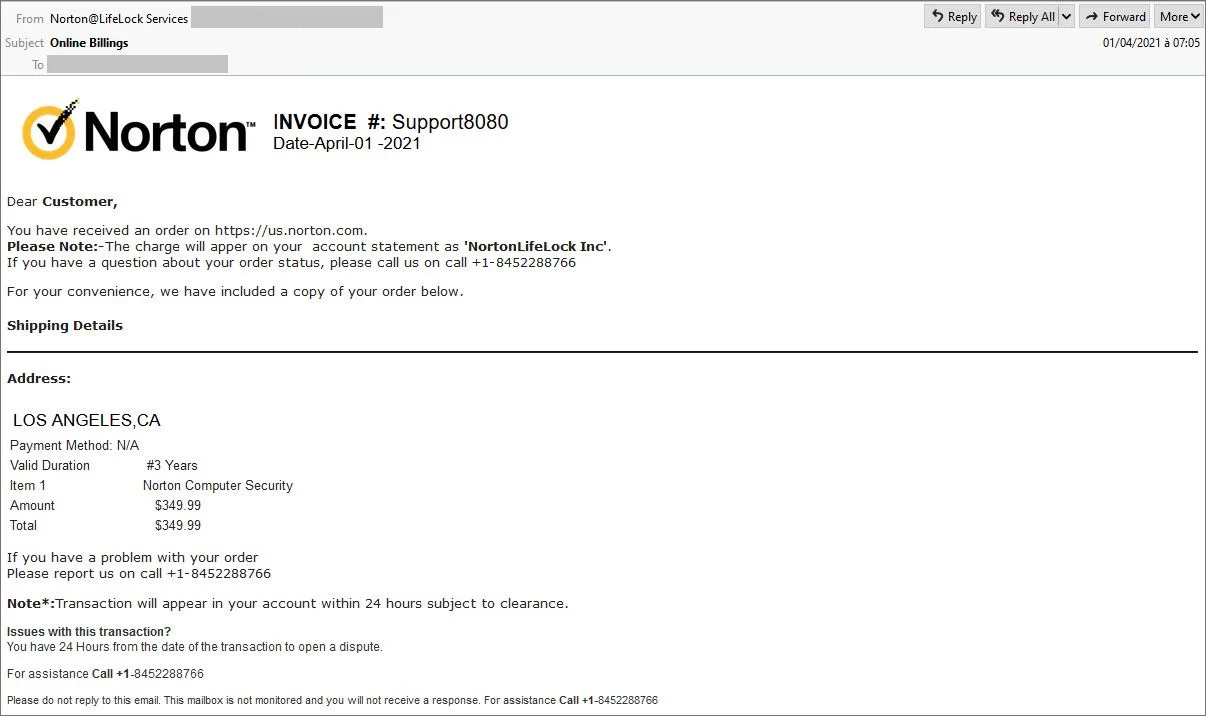
The mail says that if the recipient doesn’t act, it will be auto-renewed at that very high cost (a real Norton 360 protection subscription costs around R450 per year). A link is then placed at the bottom of the message for users to unsubscribe. However, being fooled into clicking it, will result in users being taken to a fake page where scammers will steal user names, passwords and banking details.
Unfortunately, many people fall for these scams and provide their personal and banking details to the scammers. It is even more common for older people and black people to fall for this scam as they may not have much experience with computers and tend to be more trusting.
The best line of defense against scam emails is to never to call a phone number or click on the link included in an email stating that you owe money. Instead, you should visit the company’s site and contact the number listed there to confirm if an email is valid or not.
There are some excellent tips on how to recognize phishing scams and what to do to avoid becoming a victim at this link.
Some of the information in this article was obtained from the following source: CGTN
Stay safe out there,
David Wiles




